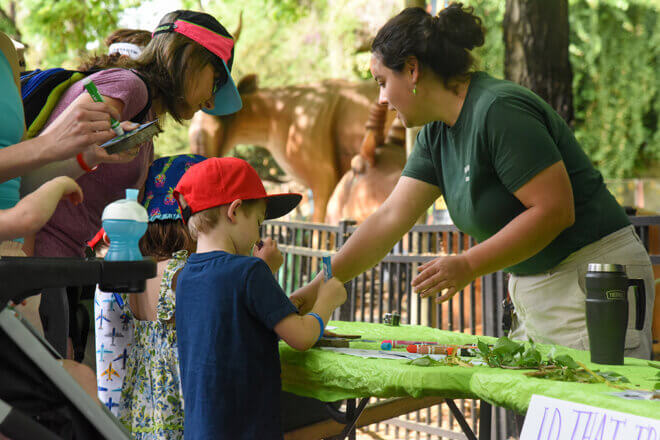The Maryland Department of Health has learned that a wild groundhog found on Saturday, July 8 in the Maryland Wilderness section of The Maryland Zoo was confirmed to have rabies. The groundhog followed a zoo visitor before being captured by zoo staff and being submitted for rabies testing. The groundhog was not a part of the Zoo’s animal collection.
Rabies is a serious disease transmitted in the saliva of an infected animal. All mammals are susceptible to rabies, including wildlife and domestic species such as dogs and cats. Animals with rabies may act normally during the early stages of the disease, making it difficult to know the animal is infected.
As the disease progresses, infected animals often show changes in behavior. Wild animals may act docile or sociable, and domestic animals may become aggressive. Rabid animals may stagger, drool, or become paralyzed. Just seeing or being in the same area as a rabid animal does not pose a risk for rabies.
Any person who touched, or was touched by, a groundhog at The Maryland Zoo between June 24 and July 8 should call the Maryland Department of Health for a risk assessment (business hours: 410-767-5649; after hours: 410-795-7365). Media questions for the zoo should be directed to its director of public relations, Jane Ballentine, at 443-552-5275.
When a person is bitten by or exposed to the saliva of a rabid animal, rabies transmission is prevented by the administration of a vaccine series provided over a 14-day period and a dose of rabies immunoglobulin given at the beginning of the series. Each year, approximately 900 Marylanders receive preventive treatment after exposure to a rabid or potentially rabid animal.
To date in 2017, 112 animals have been diagnosed with rabies throughout Maryland, including raccoons, bats, foxes, and four other groundhogs. In Maryland, as in the rest of the United States, rabies is predominantly seen in wildlife.
To prevent exposure to rabies:
- Have your dogs, cats, ferrets, horses, sheep, and cattle vaccinated against rabies.
- Keep your pet under your control at all times, especially when traveling.
- Enjoy wildlife from a distance and do not feed or attempt to rescue wildlife.
- Avoid sick animals and any that are acting in an unusual manner.
- Cover garbage cans securely and do not leave pet food outside.
- Do not relocate wildlife.
- Prevent bats from entering your home. If you find a bat in your home, do not touch it. Only let it go if you are sure no people or household pets have had any contact with it. Contact your local health department or animal control agency for assistance.
- If you or your pet has been bitten or otherwise exposed to a rabid or suspected rabid domestic animal, get the owner’s name, address and telephone number. Contact your local health department or animal control agency immediately.





Share this article